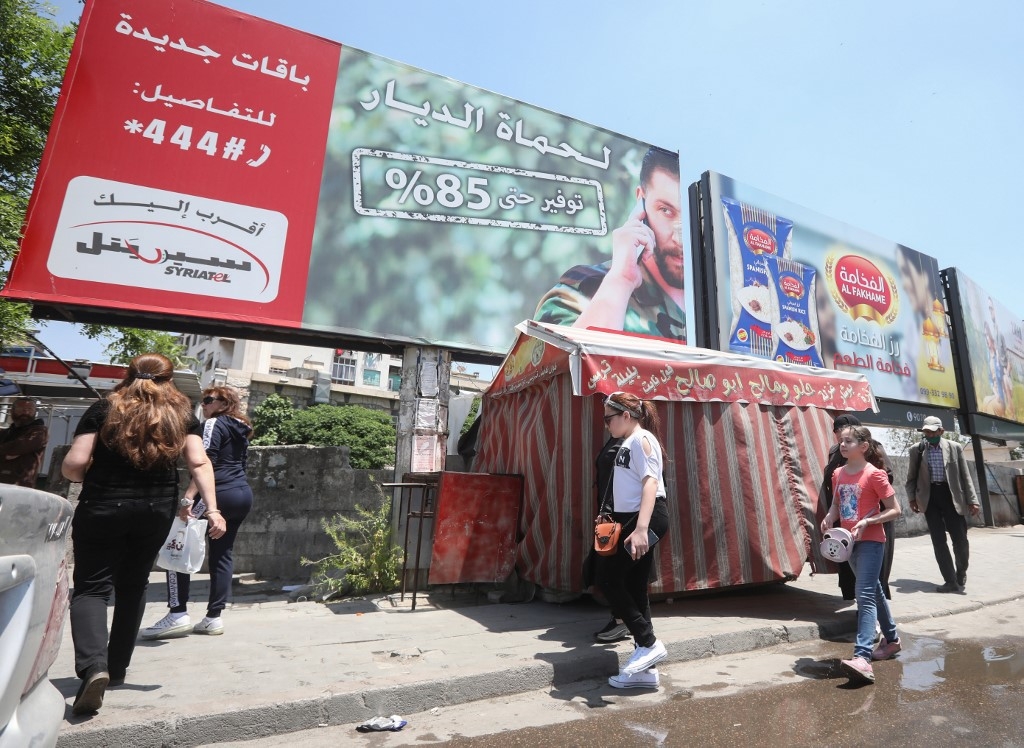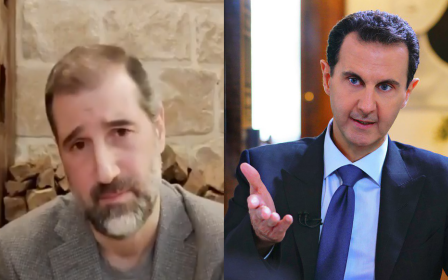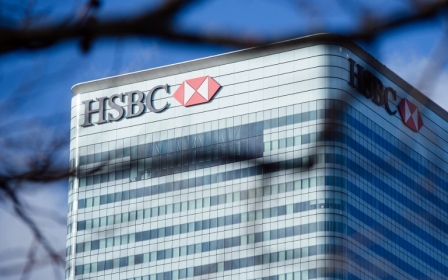Syrian court seizes Rami Makhlouf's Syriatel amid Assad spat

A Syrian mobile network carrier owned by the prominent businessman Rami Makhlouf has been placed under judicial custody, as a high-profile dispute over arrears comes to a head.
The decision regarding Syriatel, one of only two carriers in the country, was taken to "guarantee the rights of the public treasury and the rights of the shareholders in the company", Syria’s administrative court wrote on Facebook.
Makhlouf, the cousin of Syrian President Bashar al-Assad and one of the country's richest men, had his assets seized over alleged back payments to Syria's telecoms regulator, which it put at 134bn Syrian pounds, ($77m) at the current exchange rate on the parallel market.
Once at the heart of Assad's inner circle, Makhlouf has called the asset seizure illegal and an attempt by the government to take the company from him. The unprecedented public tussle has uncovered a rare rift in Syria's ruling elite.
Makhlouf has addressed the dispute in three video messages, in which he has appealed to Assad himself to help save his firm. In his last appearance, Makhlouf said he had been told to quit as the head of Syriatel.
Last month, a court placed a temporary travel ban on Makhlouf, pending settlement of the dispute.
Makhlouf's Syriatel is the biggest telecommunications company in Syria with 11 million users, and he is one of the most influential business figures in the country.
He was alleged to have controlled a significant part of the Syrian economy before war broke out in 2011, through a complex network of companies working in oil, construction, banking, airlines and telecommunications.
His wealth was estimated at $5bn before the outbreak of the uprising.
According to the Britain-based Syrian Observatory for Human Rights activist group, about 40 Syriatel employees and 19 from Makhlouf's sprawling Al-Bustan charity organisation, which has influence in several fields, have been arrested since April.
Middle East Eye delivers independent and unrivalled coverage and analysis of the Middle East, North Africa and beyond. To learn more about republishing this content and the associated fees, please fill out this form. More about MEE can be found here.




